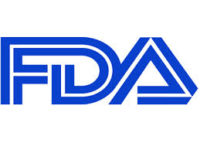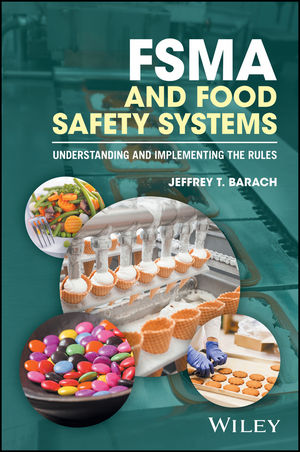FDA Pegs Food Industry With Primary Responsibility For Implementing And Monitoring FSMA Reforms

For more than 3 years, the U.S. Food and Drug Administration (FDA) has trumpeted that passage of the Food Safety Modernization Act (FSMA) is a seismic change in the manner in which food safety is assured. Described by FDA as “the most sweeping reform of our food safety laws in more than 70 years,” FDA states that FSMA represents a shift in focus from reacting to adulterated food after it is discovered in the marketplace to using proactive management of food operations and supply chains to prevent food products that can sicken people from entering the marketplace in the first place.
A primary reason for this change in food policy is the increasingly global and complex food supply chain. Products and ingredients in the U.S. food supply now come from every part of the world. In light of those complexities, companies that grow, process, transport, store and sell food products and FDA alike face unprecedented challenges to assure that food products both are safe and comprise only the ingredients advertised.
As consumers and the food industry each well know, those complexities have resulted in a delay to the rollout of FSMA and a legal skirmish to force deadlines by which the FDA must promulgate the final version of the seven regulations that form the foundation of FSMA’s core food safety obligations, which currently are as follows pursuant to a Consent Decree entered in February 2014:
Those same complexities also have given rise to questions concerning the FDA’s ability to fully implement and enforce FSMA once it finally promulgates the requisite rules and, as a result, whether FSMA will have the food safety impact intended.
In May 2014, FDA addressed some of those questions when it outlined its strategy for implementing FSMA and policing FSMA compliance. In a document entitled, “Operational Strategy for Implementing the FDA Food Safety Modernization Act (FSMA),” FDA recognizes that “[t]he burgeoning scale and complexity of the food system make it impossible for FDA on its own, employing our historic approaches, to provide the elevated assurances of food safety envisioned by FSMA and needed to maintain a high level of consumer confidence in the safety of the food supply.” As a result, FDA reiterates that its implementation and policing strategies primarily rely on food industry action, specifically industry implementation and monitoring for effectiveness of science- and risk-based preventative measures and management of supply chains. In turn, by placing primary responsibility for food safety on the industry itself, FDA intends to dedicate its resources to providing technical expertise, setting and fostering compliance with food safety standards, responding to food safety problems should they nevertheless occur, learning from problems and modifying protocols as needed.
For now, FDA intends to focus on three areas in an effort to lay the groundwork for carrying out its new strategy for FSMA implementation and monitoring and for reinforcing its message that the food industry itself has primary responsibility for assuring the safety of our food supply.
First, the FDA intends to focus on advancing public health by, among other things:
• Fostering consistent industry implementation of appropriate preventative practices for which FSMA and the FDA’s implementing rules and guidance call;
• Serving as a leader of, and a repository of information regarding, innovations in preventing food safety problems; and
• Assessing whether preventative practices are effective.
Second, recognizing that it likely will have insufficient resources to serve as the sole monitor of FSMA implementation and compliance, FDA intends to leverage the resources of others by, among other things:
• Forming partnerships with federal, state, tribal and local agencies, international organizations, academics, the food industry and consumers to create an “integrated food safety network” that efficiently uses available food safety resources; and
• Creating a database and systems that partners can utilize in carrying out their food safety activities.
Third, recognizing the substantial scale and complexity of the global food supply chain, the FDA intends to use its enhanced oversight authority to make sure that the food industry is properly implementing and monitoring effective preventative controls by, among other things:
• Providing guidance on sector specific preventative standards;
• Offering educational opportunities to the food industry regarding standards and expectations;
• Making available technical assistance to facilitate compliance;
• Offering incentives for compliance; and
• Relying on third-party audits to verify compliance.
Given this substantial shift in the manner in which th FDA intends to govern and police the food industry, it would not be surprising if it takes FDA and its partners additional time beyond the June 2015 deadline for promulgation of the final FSMA regulations to refine FDA’s plan to implement and monitor FSMA.
That begs the same question the food industry has been left wondering since the enactment of FSMA more than three years ago: What should it be doing now? The answer is two-fold.
First, prepare. Even though the precise contours of the final FSMA regulations and the manner in which FDA will implement and enforce those regulations are not settled, it is important for food companies to be proactive in the assessment of their operations, both with respect to internal processes and external relationships, including:
• Creation of a food safety team;
• Education of food safety team;
• Training of workforce on food safety issues and protocols;
• Study of science-based standards and relevant food safety trends;
• Identification of potential hazards;
• Creation of a written food safety plan;
• Establishment of preventative control systems;
• Creation of systems to monitor and verify preventative controls;
• Review of supply chain partners for compliance with food safety standards; and
• Retooling of supply relationships where needed to create a transparent supply chain.
Second, participate in the process. FDA views the release of its operational strategy as a catalyst for discussion with the food industry and other partners on how best to implement and monitor FSMA and promote food safety. Companies continue to have an important opportunity to shape the very rules that will govern their operations and impact their success.
John T. Shapiro is partner and member of the Food Industry Team at Freeborn & Peters LLP (Chicago).
>
Looking for a reprint of this article?
From high-res PDFs to custom plaques, order your copy today!
.jpg)








